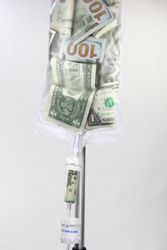Exploring The Cost Considerations Of Immune Cell Therapies
By Joonman Hong, Ph.D., MBA, GC Cell

Immune cell therapies represent a groundbreaking advancement in cancer treatment, offering a personalized approach that harnesses the body's own immune system to fight disease. Unlike traditional treatments like chemotherapy and radiation, these therapies often demonstrate improved clinical outcomes with fewer side effects, making them a crucial intervention for some of the most difficult-to-treat cancers.
However, the production of immune cell therapies is complex and costly. The personalized nature of these therapies, combined with the intricate manufacturing process, contributes to high production costs. Factors such as the need for specialized equipment, skilled personnel, and stringent quality control measures further escalate expenses. Additionally, the high cost of raw materials and the complex logistics involved in handling these therapies contribute to the overall cost.
Despite the high cost, the potential benefits of immune cell therapies for patients with previously untreatable cancers have driven significant investment in research and development. Ongoing efforts to optimize manufacturing processes, reduce production costs, and expand access to these therapies are crucial for realizing their full potential, and breakthroughs in Asia have begun to pave the way for less expensive, more accessible immune cell therapies.
Get unlimited access to:
Enter your credentials below to log in. Not yet a member of Outsourced Pharma? Subscribe today.
